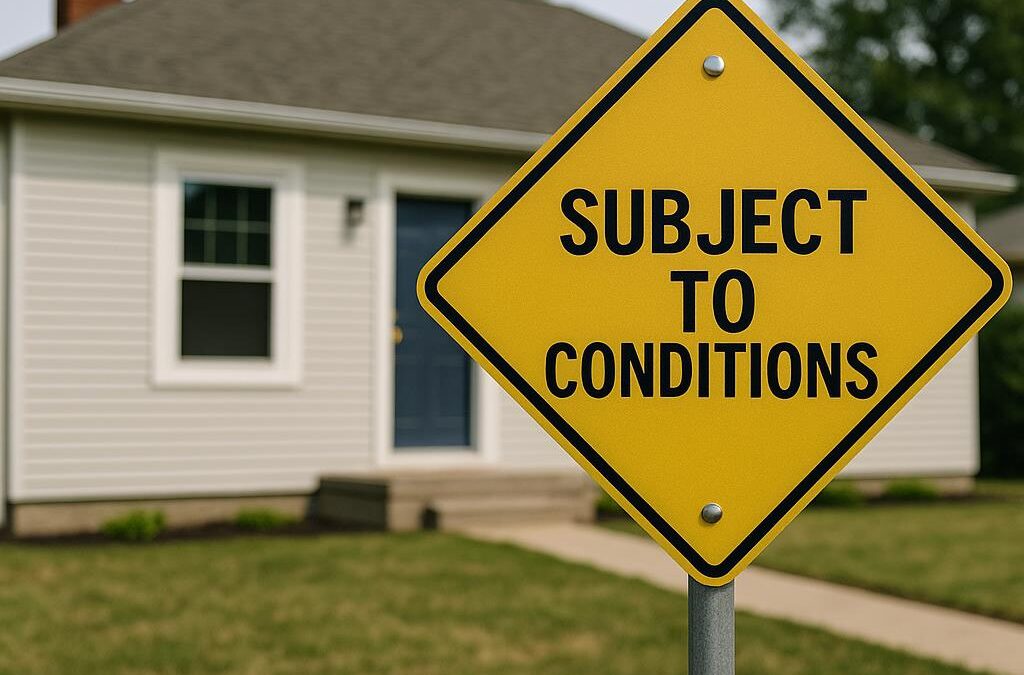Is There Any Difference Between an Offer to Purchase and an Agreement of Sale?
An offer to purchase is a written proposal made by a purchaser to a seller, expressing the purchaser’s intention to acquire the seller’s immovable property. Once the seller accepts and signs the offer, it constitutes a legally binding agreement of sale.
What is a Suspensive Condition?
A suspensive condition is a clause often found in an offer to purchase relating to immovable property that makes the transaction subject to a specific event or outcome, such as obtaining bond approval or selling an existing property, within an agreed period.
Until the suspensive condition is fulfilled, no binding contract exists between the parties. The agreement is effectively held in suspense and will only come into force once the condition has been met within the stipulated timeframe. Although both parties sign the agreement, it is not legally enforceable until the suspensive condition is fulfilled.
Examples of the Most Common Suspensive Conditions:
Bond approval – the purchaser must obtain a mortgage loan.
Sale of the purchaser’s property – the purchaser must first sell their current property.
Approval of building plans – the agreement depends on municipal approval of submitted plans.
Requirements for a Valid Suspensive Condition
For a suspensive condition to be enforceable, it must be:
Clearly defined – specifying exactly what must occur.
Time-bound – preferably with a fixed calendar date as the deadline.
Capable of fulfilment – both legally and practically achievable.
Lawful – not in conflict with legislation or public policy.
What Happens if the Condition is Not Fulfilled?
If the suspensive condition is not met within the agreed period, the agreement automatically lapses and is treated as if it never existed (void ab initio). Any deposit paid by the purchaser must be refunded, together with interest if applicable, and the seller is free to consider other offers.
Important Considerations
Precision matters: Suspensive conditions should be carefully and clearly worded. The deadline should ideally refer to a specific date rather than a vague timeframe such as “within 30 days”.
The 72-hour clause:Where a seller accepts an offer subject to a suspensive condition, it is often advisable to include a 72-hour clause. This allows the seller to continue marketing the property and to accept another offer, subject to first giving the original purchaser 72 hours to fulfil or waive the condition.
Timely action:Both parties should act promptly to avoid unnecessary delays. A missed deadline, even due to oversight, can cause the agreement to lapse.
Waiver of the condition: The party for whose benefit the condition was inserted may, in many cases, formally waive it, provided the agreement allows for such a waiver.
No cancellation required: If the suspensive condition is not met or waived in time, the agreement automatically lapses. No notice or cancellation is required. If the parties still wish to proceed, a new agreement of sale must be signed.
Protect Your Transaction with Proper Legal Advice
While suspensive conditions offer important protection, they can also result in lost opportunities or disputes if poorly drafted or misunderstood. It is essential to obtain legal advice before signing any offer to purchase.
At LB Vorster Attorneys, we assist buyers and sellers in ensuring that their property transactions are properly structured and legally sound.
Let us guide you through the process and help safeguard your interests.




Recent Comments